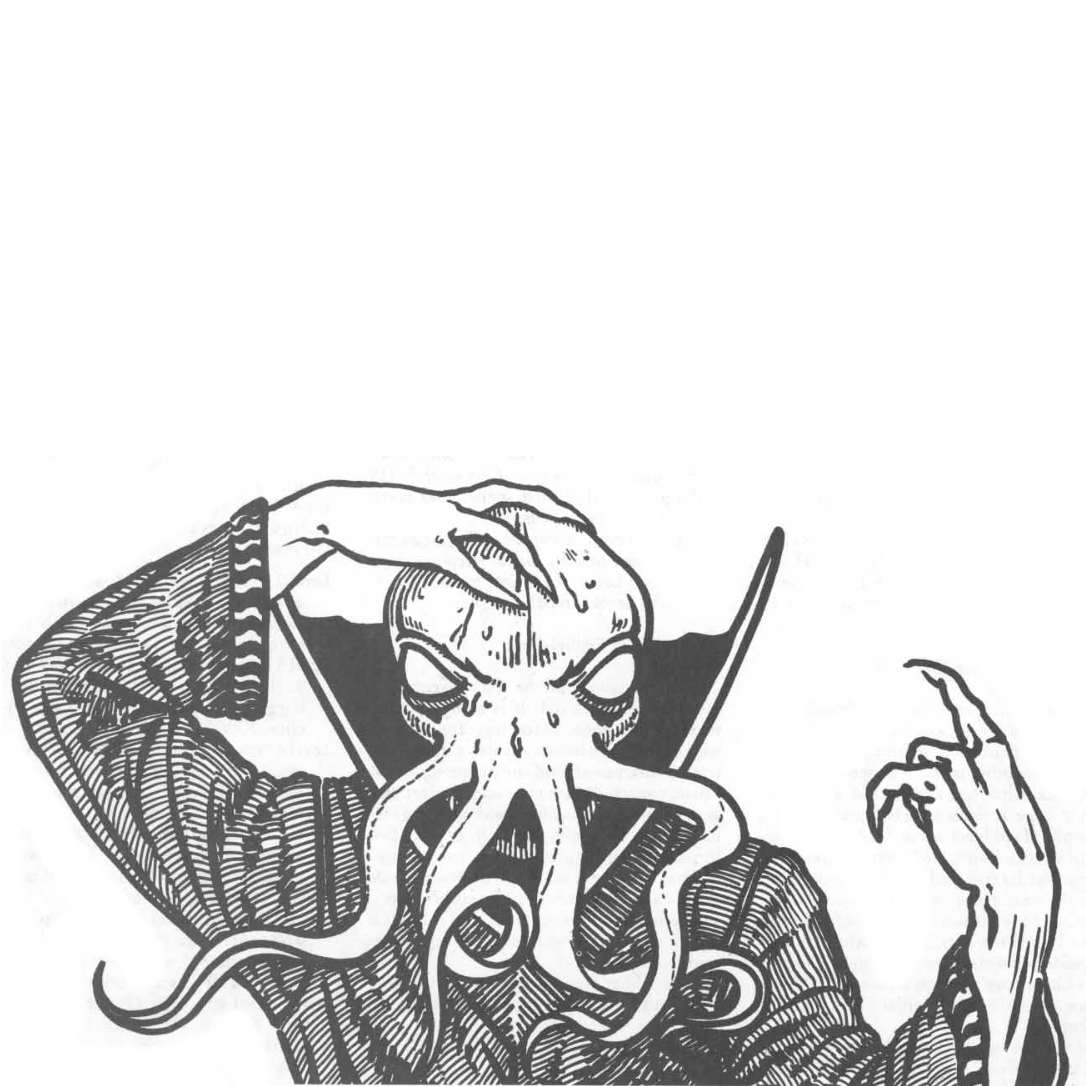Asking because every time I tried to play a villain game, as in, the players are the villains, it devolved basically into a murder-hobo fiesta. And that might be ok, and is fun sometimes, but just not my cup of tea, especially for a long-haul campaign. Have any of you ever had a good experience with villain campaigns? How did it go?
I once played a one-shot where someone suggested we go full evil party and the DM accepted. He was kind of excited even. We’re usually very keen to help every NPC that comes asking for help. But this time, as an evil party, we had ulterior motives. We agreed to help, but for a price! We didn’t kill anyone. My character ended up turned into a flesh golem or something. Probably the kindest evil party ever.
that’s the way to go lol
I had a campaign with an evil party once, it honestly wasn’t a great experience. I think it requires experienced players to make it work. It was a struggle to find roleplaying reasons for the party to work together to achieve a common goal. Roleplaying also got a bit exhausting because all the characters were essentially selfish. To make it work, all players should think hard about a compelling reason why they want to work together, it would probably make it easier if they’re all from the same organization for example.
Have the party play as the BBEG henchmen. Let’s them swim in the evil end of the pool, while still corralling them with consequences for their actions.
Works much better if the BBEG is one who works from the shadows. Which should alleviate the temptation to be murder-hobos.
Final session is the apprentices turn against their master, then a PvP brawl to determine who the next BBEG is. Then put them as the BBEG for your next campaign.
One key problem is that a “villain” is generally more powerful than players are for most of the campaign - using that as a starting point can wind up introducing serious issues with normlessness. Becoming a villain should be the aspiration and the apex accomplishment of the campaign, rather than the starting point for it.
It’s more necessary than in other campaigns to model a world where there’s an in-world reason why other parties of higher level aren’t straight-up murderhoboing their way to ruling the kingdom. Or even that they did - but how would those guys respond to your players doing that in “their” kingdom? Worlds need a reason for players to follow the rules - not that they are challenging you as DM and you need to punish them for playing ‘wrong’ - but that the world exists in a state where murderhobo isn’t optimal play, even if you’re evil - that no matter how strong a party of five get, there are still other forces that can put them in check somehow, and when they finally break that rule … the campaign ends. They won.
As a DM, often you need to make sure the game contains bigger and stronger rails in the early stages of the campaign. Maybe that’s some goal that the party agreed to above-table, maybe it’s some context of the party like working for someone bigger, meaner, and eviller - but the call to adventure is much more tenuous with evil characters. For good parties, they stumble through fetchquests and ratting until they stumble across an evil scheme that needs foiling - but for evil characters, there’s not really the same “diabolically good conspiracy” that they need to foil before the timer runs out. They need to initiate, rather than react. Or you need to provide that initiation for them, as DM.
It’s very easy for a directionless evil party to just wander the countryside robbing shops and killing people, if you’re not giving them something more concrete to do and they’re not creating it themselves.
You can still save the kingdom as a party full of evil bastards. Baron van Dyne can’t usurp the crown with the aid of an army of elven barbarians, because the crown is not his to steal. It’s mine.
Just like any party, you need a motivation that’s compatible with cooperation and the narrative in some capacity. The only difference is that in stereotypical ‘good’ parties, players can just default to ‘save the kingdom because it is Right’ rather than having to think about it.
For sure - bad people can do good things for bad reasons. Hell, bad people can do good things for bad reasons and still be popular and viewed as positive or even “good” by some or even most people affected.
A king being possessive of their crown is a great example - Machiavelli’s prince placed a great deal of emphasis on arguing that a ruler who solely wants to retain power for the sake of holding power must still use their power in a way that is positive and is perceived as positive. The most effective way to keep power for selfish reasons are to keep the economy and the judiciary stable and to keep the common folk happy and pacified. The happier “everyone” is with the King’s rule, the more power can be abused against individuals without leading to revolt.
Just like any party, you need a motivation that’s compatible with cooperation and the narrative in some capacity. The only difference is that in stereotypical ‘good’ parties, players can just default to ‘save the kingdom because it is Right’ rather than having to think about it.
This is kind of what I was getting at there - that good for goodness’ sake is not an inherent motivation for evil parties, so a party lacking the motivation of a moral compass needs alternative motives to replace it, otherwise they wind up directionless. That can still be a self-imposed moral code, like “no women or children” or “slavery crosses a line even for me” - and that can have good or bad or neutral moral outcomes regardless of its motivations.
Just that, above-table, the players and the DM need to acknowledge that need and contribute to addressing it, or evil campaigns very easily degenerate into un-fun gameplay experiences due to aimless normlessness.
While it may not be as gritty/dark as some envision an evil campaign to be, Dimension 20 did an evil campaign mirroring LOTR (albeit in a non copy right violating and light hearted spin).
Personally I enjoyed it, and the full campaign is available on youtube https://youtube.com/playlist?list=PLhOoxQxz2yFOSXAFjzg9GQFoky53tDm9d
It even features Matt Mercer as one of the PCs :)
I haven’t actually done it, but I’ve always felt that if I were to run an “Evil campaign” that I would want it to be less about a squad of supervillains and more akin to something like Peaky Blinders, Fargo (the show), or Goodfellas. Basically I think a story about a crime syndicate would make a far better framework for a long-term evil rpg campaign.
A group of people that are willing to do horrible things works a lot better if they have reasons to implicitly trust each other, like because they are trying to build a crime empire together. The whole “Avengers but they’re evil” thing doesn’t really work as well as a storytelling setup.
All my campaigns are more or less villainous. I encourage my players to go hard on their characters’ motivations and goal. I offer easy solutions that hurts people, solutions that put them at odds with society and its norms. One game a character released an ancient enemy of the people in order to advance their own religious doctrine. Another they sold out a band of troll hunters to the trolls for wagon loads of treasure. That event also released the troll king from its prison of chimes sparking a troll march. Final example, the campaign I’m sketching on currently will have the party be a part of a caravan expedition. Peeling back barely a layer and you’ll find imperialism and colonialism motivating the existence of the caravan.
So yeah, going villainous is very doable. The thing however is to figure out what will stop the characters from just killing everyone in their way. Easiest is to make sure there are powers more powerful than them and the fear of them keeping the characters discreet. Or they have to follow some rules to keep benefits from some organisation. Or morality? Who knows it may be that the character’s gran-gran disapproves of killing and the character doesn’t want to upset her.
And as always - talk to your players. You as a group probably can figure out what will keep your characters in line.
that’s some solid advice right there
Dnd is not for that. I recommend wicked ones for this kind of play. You can surely lift some of its systems, I think it’s free since a while ago
makes sense
They make great one-shots, but horrible, friendship-destroying campaigns unless you have players who absolutely understand how much PVP is about to inevitably happen.
I think they may great one shots or short fun comedy campaigns, but not sure would want to not.bw heroic for long one



